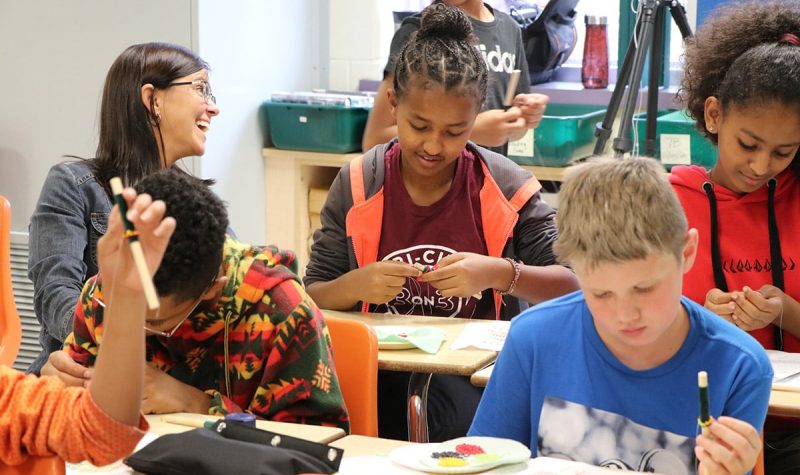Wednesday was National Indigenous Peoples Day, and a local school board marked the occasion by highlighting a program that allows students to learn math, art and technology from local Indigenous Peoples. The program is being sought after by many local schools.
In a press release, the Upper Grand District School Board (UGDSB) explained during the project Indigenous and non-Indigenous students and educators would do this by breaking down the math components (transformational geometry, proportional reasoning, measurement, ratio, spatial reasoning, etc.) in Indigenous art such as hairpipe bracelets, loom beading, beaded medallions, beaded peyote stitch keychains and finger weaving.
The First Nations Métis Math Voices Project gives students the chance to engage in these interactive exercises throughout UGDSB. The program is led by Coordinating Principal of Indigenous Education Colinda Clyne.
Currently, the count of schools who have requested engagement sits at ten. However, there aren't enough artists locally to fill all these spots.
Hubs where students and teachers alike can get together and learn this curriculum is being considered a temporary and working solution for this issue. A grant was issued to Clyne and her group that will help in creating one of these hubs at Willow Road Public School in Guelph.
Clyne, from the Kitigan Zibi Anishinabeg Nation, says the hope is to have content, stories, and the presence of Indigenous peoples in board schools regardless of the season.
"I hope it's way beyond a day or a month. That's why we do this work all year. Bringing Indigenous content and Indigenous community partners should be something that we're doing on an ongoing basis and it will have a huge impact on students," Clyne said.
Clyne says the program makes a big difference for these children and their appreciation of Indigenous culture.
"They all talk about how they built relationships with community partners and I think it makes it clear to them that Indigenous peoples are right in our community and that they're people that have their own way of learning and understanding. Everyone can benefit from that," she stated.
Clyne also hopes the board can one day see Indigenous youth within schools leading these exercises themselves. She says she was happy to hear the positive relationships the children have built with community partners.
Listen to the CICW story below:


